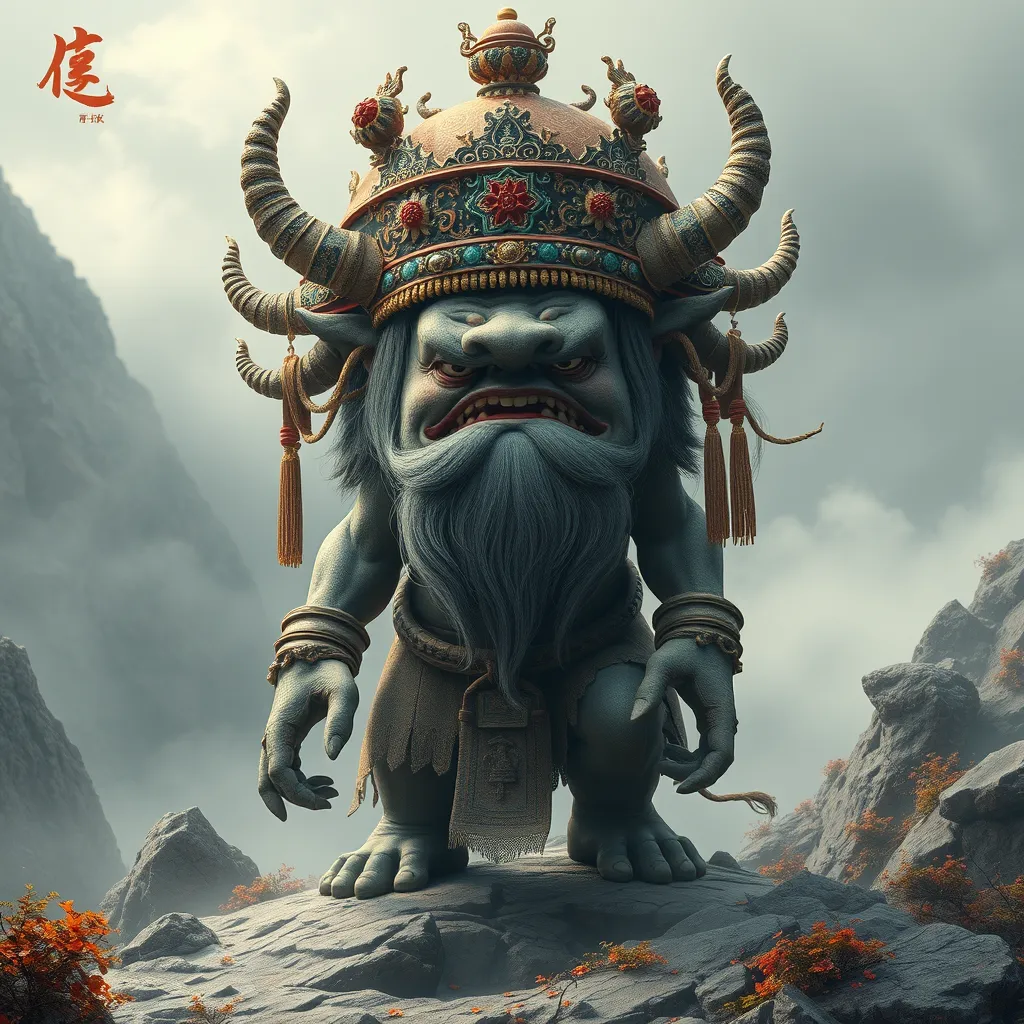The Chinese Troll: The Mountain Spirit and the Guardian of the Earth
I. Introduction
Chinese folklore is rich with tales that encapsulate the beliefs, traditions, and values of its people. These stories often serve to explain natural phenomena, impart moral lessons, and connect humanity with the spiritual realm. Within this tapestry of folklore, the concept of the Chinese Troll, particularly represented by the Mountain Spirit, emerges as a significant figure, embodying dual characteristics of both a trickster and a protector.
II. The Origins of the Chinese Troll
The origins of the Chinese Troll can be traced back to ancient times when animism was a prevalent belief system. The Mountain Spirit, known as ‘Shan Shen,’ is deeply rooted in the historical and cultural contexts of various Chinese ethnic groups. Myths and legends surrounding the Mountain Spirit often depict it as a guardian of nature, tasked with maintaining harmony between humanity and the environment.
Unlike similar figures in other cultures, such as trolls in Norse mythology or leprechauns in Irish folklore, the Chinese Troll is characterized by its benevolent yet mischievous nature. While Western trolls are often seen as malevolent beings, the Mountain Spirit embodies a more complex personality, often teaching humanity through playful trickery.
III. Characteristics of the Mountain Spirit
The Mountain Spirit is often depicted with unique physical attributes that reflect its connection to nature. Common characteristics include:
- Rugged, earthy features symbolizing the mountains and forests it inhabits.
- Clothing made of natural materials, such as leaves and bark.
- A wise and weathered appearance, often with a long beard symbolizing age and wisdom.
Behaviorally, the Mountain Spirit exhibits traits of both mischief and wisdom. It plays tricks on travelers, leading them astray or challenging them with riddles. However, these actions often serve a greater purpose, teaching lessons about respect for nature and humility. The symbolism of the Mountain Spirit in Chinese culture extends beyond mere folklore; it represents the delicate balance between humanity and the natural world.
IV. The Mountain Spirit’s Role in Nature
Central to the identity of the Mountain Spirit is its profound connection to the earth and the environment. The Mountain Spirit acts as a guardian of mountains, forests, and wildlife, embodying the essence of nature itself. Its role can be summarized as follows:
- Protector of natural landscapes, ensuring their preservation.
- Symbol of balance, representing the interdependence of all living things.
- Encourager of sustainable practices among humans, reminding them of their responsibility to the earth.
V. Tales and Legends Featuring the Chinese Troll
Numerous tales and legends feature the Mountain Spirit, each imparting moral lessons that resonate with cultural values. Some famous stories include:
- The Lost Traveler: A story about a traveler who gets lost in the mountains only to be guided by the Mountain Spirit, who teaches him the importance of humility and respect for nature.
- The Wise Riddle: A tale where the Mountain Spirit presents a riddle to a greedy villager, ultimately leading him to understand the value of sharing and community.
These interactions between the Mountain Spirit and humans often reflect the values of respect, humility, and coexistence with nature. The impact of these tales on cultural beliefs is profound, as they instill a sense of responsibility towards the environment.
VI. Modern Interpretations and Representations
In contemporary media and literature, the Mountain Spirit continues to capture the imagination of audiences. Films, books, and artworks often reinterpret this figure, showcasing its dual nature as both a trickster and a guardian. The resurgence of interest in folklore and mythology has led to a renewed appreciation for the Mountain Spirit, highlighting its relevance in today’s society.
Modern interpretations often emphasize:
- The importance of ecological awareness.
- The interplay between tradition and modernity.
- The enduring nature of cultural narratives in shaping contemporary identity.
VII. The Mountain Spirit in Environmental Conservation
The concept of the Mountain Spirit has significant implications for environmental conservation. Eco-spirituality, which emphasizes the connection between ecological health and spiritual well-being, resonates deeply with the teachings of the Mountain Spirit. Folklore plays a crucial role in promoting environmental awareness, as it fosters a sense of connection to nature and highlights the importance of stewardship.
Case studies of cultural preservation efforts linked to the Mountain Spirit illustrate how folklore can drive community engagement in conservation activities. These efforts often include:
- Community-led reforestation projects inspired by local legends.
- Educational programs that integrate folklore with environmental science.
- Festivals celebrating the Mountain Spirit, promoting ecological awareness.
VIII. Conclusion
In summary, the Mountain Spirit holds a vital place in Chinese culture, encapsulating the beliefs about the relationship between humanity and nature. The enduring legacy of the Chinese Troll, as represented by the Mountain Spirit, speaks to the importance of folklore in shaping environmental consciousness and cultural identity.
As society continues to grapple with ecological challenges, the teachings of the Mountain Spirit remind us of the need to respect and protect our natural surroundings. Ultimately, the interplay between folklore, nature, and human behavior is a testament to the wisdom of our ancestors and a guiding light for future generations.




